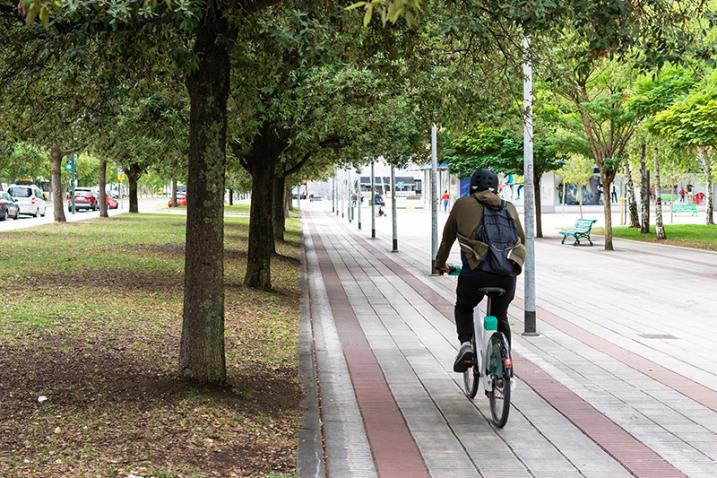Why celebrate the bicycle?
Regular physical activity of moderate intensity – such as walking, cycling, or doing sports – has significant benefits for health. At all ages, the benefits of being physically active outweigh potential harm, for example through accidents. Some physical activity is better than none. By becoming more active throughout the day in relatively simple ways, people can quite easily achieve the recommended activity levels.
According to the World Health Organization (WHO), safe infrastructure for walking and cycling is also a pathway for achieving greater health equity. For the poorest urban sector, who often cannot afford private vehicles, walking and cycling can provide a form of transport while reducing the risk of heart disease, stroke, certain cancers, diabetes, and even death. Accordingly, improved active transport is not only healthy; it is also equitable and cost-effective.
Meeting the needs of people who walk and cycle continues to be a critical part of the mobility solution for helping cities de-couple population growth from increased emissions, and to improve air quality and road safety. The COVID-19 pandemic has also led many cities to rethink their transport systems.
Cycling and sustainable development
World Bicycle Day draws attention to the benefits of using the bicycle — a simple, affordable, clean and environmentally fit sustainable means of transportation. The bicycle contributes to cleaner air and less congestion and makes education, health care and other social services more accessible to the most vulnerable populations. A sustainable transport system that promotes economic growth, reduces inequalities while bolstering the fight against climate change is critical to achieving the Sustainable Development Goals.
On 15 March 2022, the General Assembly adopted the resolution on integration of mainstream bicycling into public transportation systems for sustainable development. It emphasized that the bicycle is an instrument of sustainable transportation and conveys a positive message to foster sustainable consumption and production, and has a positive impact on climate.
Background
Acknowledging the uniqueness, longevity and versatility of the bicycle, which has been in use for two centuries, and that it is a simple, affordable, reliable, clean and environmentally fit sustainable means of transportation, fostering environmental stewardship and health, the General Assembly decided to declare 3 June World Bicycle Day.
It encouraged stakeholders to emphasize and advance the use of the bicycle as a means of fostering sustainable development, strengthening education, including physical education, for children and young people, promoting health, preventing disease, promoting tolerance, mutual understanding and respect and facilitating social inclusion and a culture of peace.
The Assembly welcomed initiatives to organize bicycle rides at the national and local levels as a means of strengthening physical and mental health and well-being and developing a culture of cycling in society.
Bicycle sculpture by the sea by Ai Wei Wei
Documents
- World Bicycle Day — GA Resolution (A/RES/72/272)
- Integration of mainstream bicycling into public transportation systems for sustainable development — GA Resolution (A/RES/76/255)
- Global action plan on physical activity 2018–2030
- Share the Road Programme Annual Report 2018
- New Urban Agenda
- The right of everyone to the enjoyment of the highest attainable standard of physical and mental health: sport and healthy lifestyles as contributing factors (A/HRC/RES/26/18)
- Political Declaration of the High-level Meeting of the General Assembly on Prevention and Control of Non-communicable Diseases (A/RES/66/2)
Related Observances
- International Day of Sport for Development and Peace
- International Day of Yoga
- The World Day of Remembrance for Road Traffic Victims
- World Sustainable Transport Day




